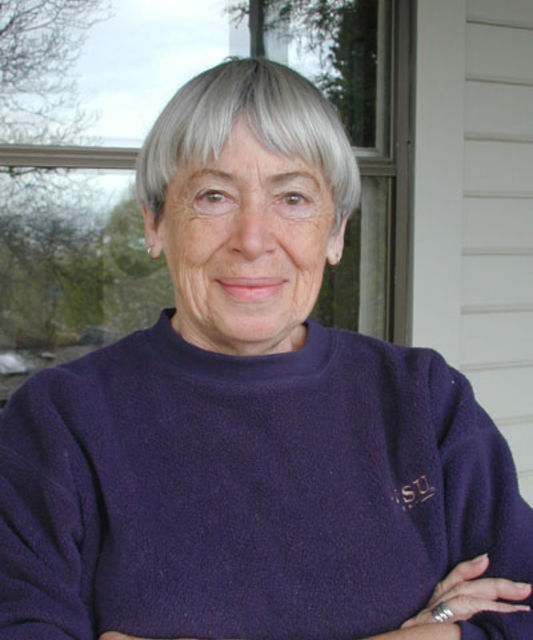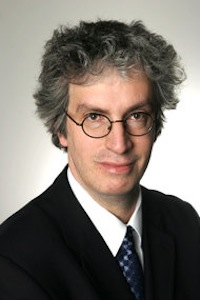
Slowing down? Pull the other one.
Ursula K. Le Guin is eighty-eight years old. Let that sink in: eighty-eight years old. She claims she’s slowing down, but not so much that she isn’t actively participating in the Library of Congress effort to collect and publish her collected works. “What I did not realize is that being published in the Library of America is a real and enduring honor,” she says. “Especially while you’re still alive. Philip Roth and I make a peculiar but exclusive club.”
We were delighted to see her interview at the Los Angeles Review of Books with the Pulitzer prizewinning New York Times journalist David Streitfeld (I describe the occasion of our meeting here.) He’s published his books of interviews with Gabriel García Márquez, Philip K. Dick, J. D. Salinger, and Hunter S. Thompson. Can Ursula K. Le Guin be far behind?
An intriguing excerpt from “Writing Nameless Things: An Interview with Ursula K. Le Guin”:
Malafrena (1979), the novel that is the volume’s centerpiece, takes place during a failed revolution in the early 19th century in an imaginary European country somewhere near Hungary.
It’s one of my works that is neither fantasy nor science fiction. So what do you call it? It’s not alternative history because it’s fully connected to real European history. There is no name for it. That’s my problem, I do nameless things.
It’s been a long journey for some of these books. Fifty years ago, they were originally published as SF paperbacks.

David’s won a few honors, too.
I’m not remotely ashamed of their origins, but I am not captivated by them either the way some people are. Some people are fascinated by the pulps — there’s something remote and glamorous in the whole idea of a 25-cent book. I am in the middle of rereading Michael Chabon’s The Amazing Adventures of Kavalier & Clay. Michael is enthralled by the whole comic book thing. That is perfectly understandable and I enjoy his fascination, but my mind doesn’t work that way. I am into content. Presentation is something that just has to be there.
Fifty years ago, science fiction and fantasy were marginal genres. They weren’t respectable. In 1974, you gave a talk entitled “Why Are Americans Afraid of Dragons?”
There’s a tendency in American culture to leave the imagination to kids — they’ll grow out of it and grow up to be good businessmen or politicians.
Hasn’t that changed? We seem inundated with fantasy now.
But much of it is derivative; you can mash a lot of orcs and unicorns and intergalactic wars together without actually imagining anything. One of the troubles with our culture is we do not respect and train the imagination. It needs exercise. It needs practice. You can’t tell a story unless you’ve listened to a lot of stories and then learned how to do it.
You’ve been concerned recently about some of the downsides of the imagination.
I feel fine as far as literature is concerned. The place where the unbridled imagination worries me is when it becomes part of nonfiction — where you’re allowed to lie in a memoir. You’re encouraged to follow the “truth” instead of the facts. I’m not a curmudgeon, I’m just a scientist’s daughter. I really like facts. I have a huge respect for them. But there’s an indifference toward factuality that is encouraged in a lot of nonfiction. It worries me for instance when writers put living people into a novel, or even rather recently dead people. There’s a kind of insolence, a kind of colonialization of that person by the author. Is that right? Is that fair? And then, when we get these biographers where they are sort of making it up as they go along, I don’t want to read that. I find myself asking, what is it, a novel, a biography?
Read the whole thing at the L.A.R.B. here.
Tags: David Streitfeld, Michael Chabon, Philip Roth, Ursula K. Le Guin

